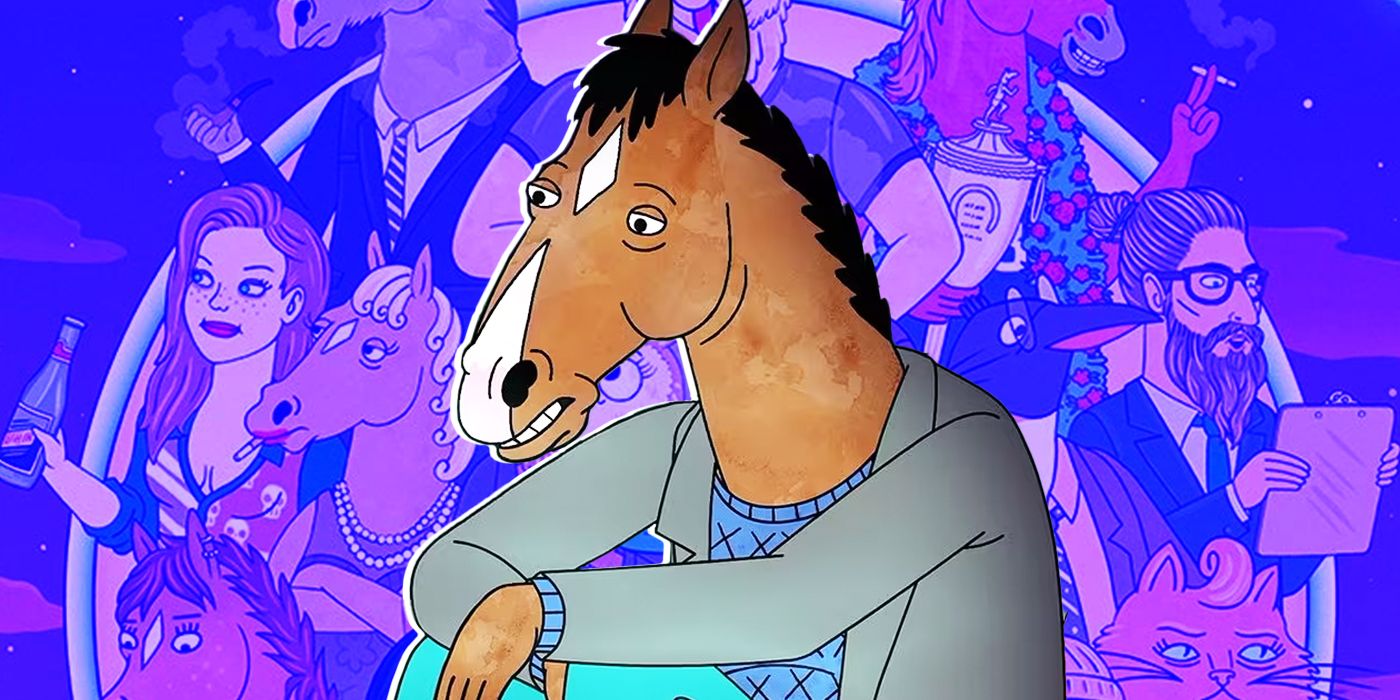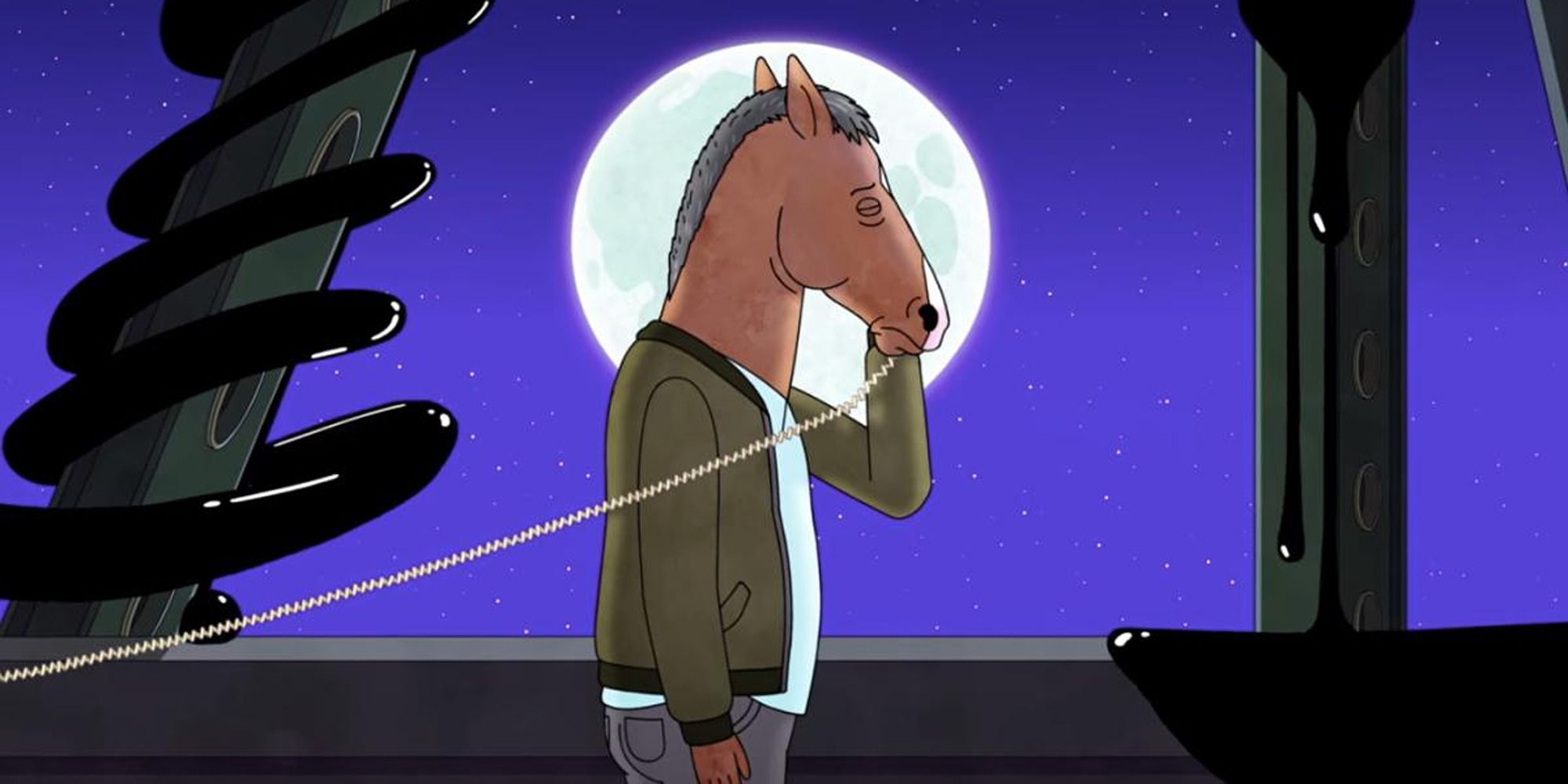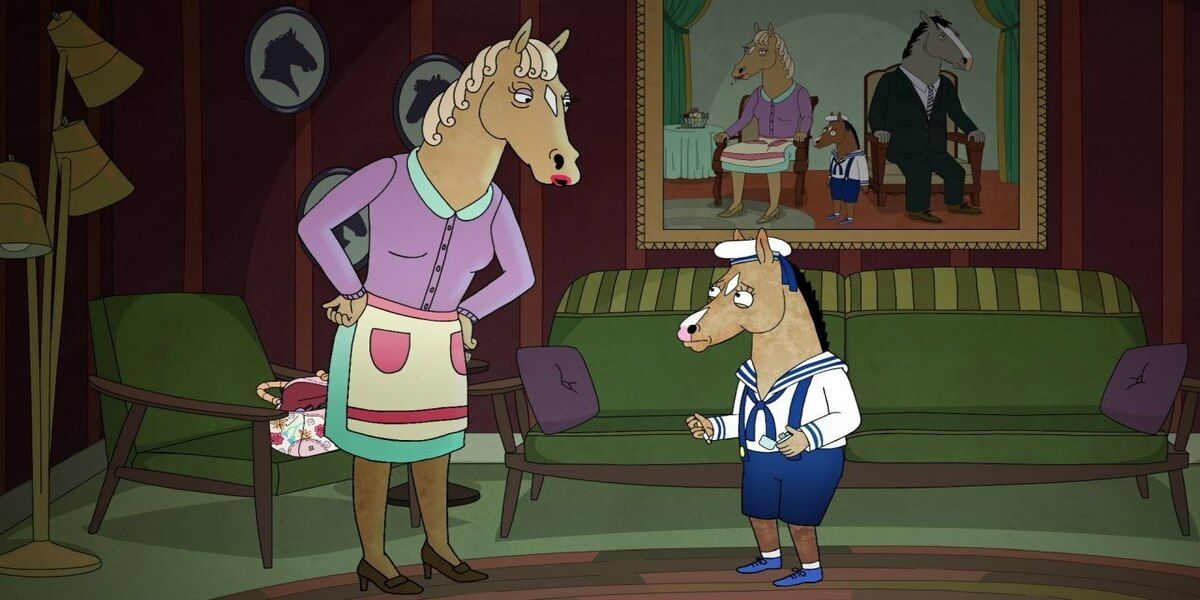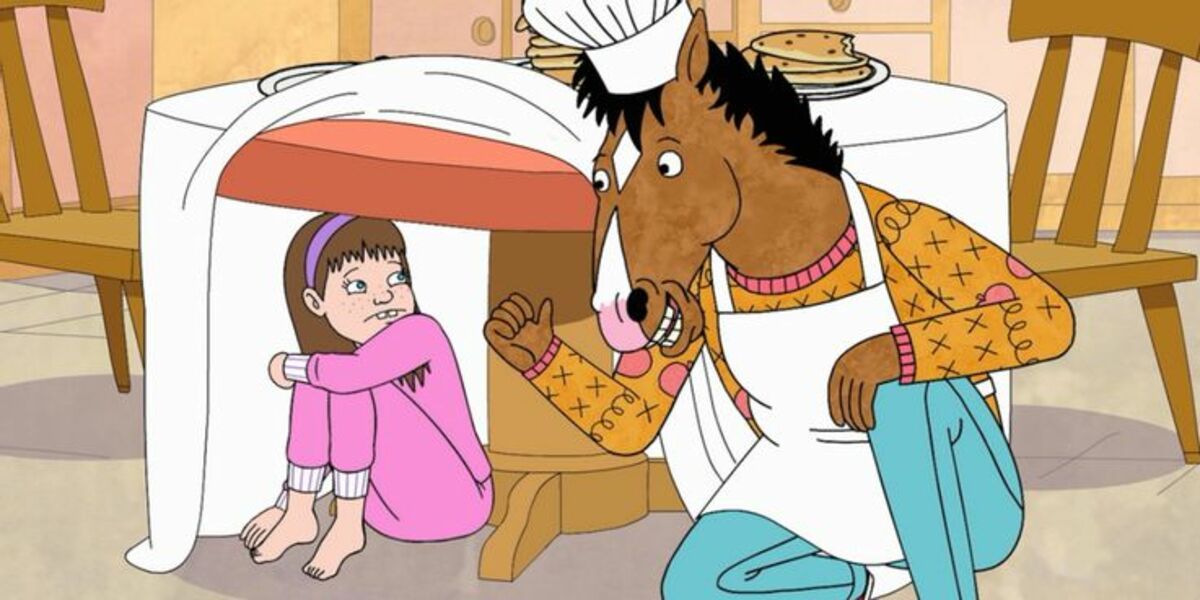The Big Picture
Leo Tolstoy once said that all happy families are alike, but all unhappy families are unhappy in their own ways. Thus, it’s no surprise that happy families are so few. For a family to be happy, every little component needs to work together in harmony, but there are an infinite number of variables that could go wrong. So, it’s no surprise that dysfunctional families are so copious on TV. Each unhappy family has an often poignant, but always unique story to tell about itself. You have your Roys from Succession, Reynolds from It’s Always Sunny In Philadelphia and Bluths from Arrested Development, each of them unhappy and dysfunctional in their own ways. But none of these families come as unhappy as the Horseman from BoJack Horseman.
Most sitcoms tell us that the family we’re following is dysfunctional and use this dysfunctionality to extract humor. But BoJack Horseman goes a step beyond and asks why the Horseman family is the way it is. It oscillates back and forth across generations to uncover the reason behind the unhappiness of its individual character, thus providing us with a depressing but a satisfactory answer about their family’s unhappiness.
What Is Netflix’s ‘BoJack Horseman’ About?
It’s difficult not to enter an introspective state after binging BoJack Horseman. The show lures its audience in with its anthropomorphic world, vibrant aesthetics, pop-culture references, and zany humor. And when the audience is fully hooked, it poses difficult questions about the everyday defilement and purification of existence, forcing deep reflection upon its viewer. The beauty of BoJack Horseman lies in how it neatly packages the nuances of the human condition and presents it in a manner that leaves the viewer with a lingering aftertaste.
Indeed, the show’s best moments have risked being unabashedly honest about the internal turmoil that each character faces when having to choose between doing the easy thing and doing the right thing. And the protagonist we follow, BoJack Horseman (Will Arnett), is mostly inclined towards doing the easy thing. BoJack is a washed up actor who is still living off the success of a sitcom that ended 20 years ago. We see him attempting to make a comeback into Hollywood, and along the way, we also see the horrible, horrible things he does — like sabotaging his best-friend’s music career, inviting a friend who’s nine months sober to a bender and causing her death, strangling a colleague under the influence of drugs, and so much more. At the same time, we also get a glimpse into his depressing childhood, surrounded by emotionally abusive parents who starved him of love. The purpose of this backstory isn’t to make you forgive Bojack or make him likable, but to paint a nuanced picture of a character who comes from a dysfunctional family.
Will Arnett’s BoJack Horseman Had The Worst Parents
Most sitcoms treat the dynamics of a dysfunctional family with a heavy dose of absurdity, as it can be difficult to write gags about a situation so depressing. But when BoJack Horseman talks about dysfunctional families, it lets the humor recede into the background, bringing the reality of familial traumas to the forefront. The method that the show applies is that it doesn’t show us BoJack’s wretched childhood in one go, but it scatters the pieces throughout the show, allowing us to form a larger picture and contextualize what we’ve seen around it.
Both of BoJack’s primary caregivers, Beatrice (Wendie Malick) and Butterscotch (Arnett) were horrible at being parents. Beatrice seemed to enjoy hurling insults and hurtful, mean comments towards her son. She blamed BoJack for the loss of her youth, beauty and potential, and it was her way of avenging the loss. She constantly told him that he was good for nothing and that he better grow up to be something great for all the damage he’s done. Due to her spiteful nature, there was never a moment where she showed any semblance of love and affection towards her son up until the very end. Additionally, BoJack’s father was inconsiderate and didn’t care if his words and actions were negatively impacting his kid currently in formative years. When BoJack caught his father having an affair with his secretary, Butterscotch got BoJack drunk and later blackmailed him about it to keep his lips sealed. This implies that BoJack’s father had a hand in carving out a path towards substance abuse for him. It’s difficult to say if it’s instances like these and more that resulted in BoJack becoming an alcoholic, and overall inconsiderate person, but his abusive upbringing certainly didn’t help.
‘BoJack Horseman’ Depicts the Realities of Inter-Generational Trauma
For the first half of the show, we see a few glimpses of BojJck’s upbringing, making it easy for us to villainize his parents, especially his mother, Beatrice. But in Season 4, the show flips and takes us on a journey through Beatrice’s own childhood to map out the harrowing events that made her into the spiteful old woman. In the episode “The Old Sugarman Place” we learn that Beatrice’s mom, Honey Sugarman (Jane Krakowski), had a son, Crackerjack (Lin-Manuel Miranda), who died in the war, and the grief struck her so badly that she was unable to function normally. During one such unmanageable bout of grief, she got drunk and crashed her car while little Beatrice was inside. The response from Honey’s husband wasn’t to talk to her or send her to a grief counselor, but to straight up lobotomize her. Beatrice sees all of this when she is just little, and she notices that her mother has become a hollow person after the procedure. Still, Honey departs one crucial lesson to her daughter, that love does terrible things to a person, and even makes little Beatrice promise that she’ll never love anyone as much as she loved Crackerjack.
In another episode, “Time’s arrow,” we see that Beatrice was extremely insecure about her weight because of the inordinate amount of importance placed on appearance by her father. She was never allowed to eat ice-cream because it would make her fat, and had to resort to eating lemon with sugar sprinkles as a treat. We also see her taking “pretty pills” which are presumably some kind of weight loss supplement. And she seems to carry this insecurity surrounding looks all her life, passing it on to BoJack and even Hollyhock (Aparna Nancherla), BoJack’s half-sister, constantly shaming them for their weight. In the episode “Lovin That Cali Lifestyle!!” we learn that Beatrice was secretly spiking Hollyhock’s drinks with “pretty pills” to a point of overdose.
In turn, BoJack also passes on the trauma to his daughter figures. Beatrice instilled an unhealthy need to perform in BoJack, forcing him to sing a song at a party. When BoJack says he doesn’t feel like singing, his mother replies, “Nobody gives a damn what you feel like. You’ve got an audience out there, and they want to hear you sing. Now you want your mommy to love you, you go out there and you do the only thing you’re good for, which is singing that lollipop song.” A few decades later, we see BoJack echoing the same lines to a young Sarah Lynn (Kristen Schaal) who is having performance anxiety. Indeed, the poison does drip through.









